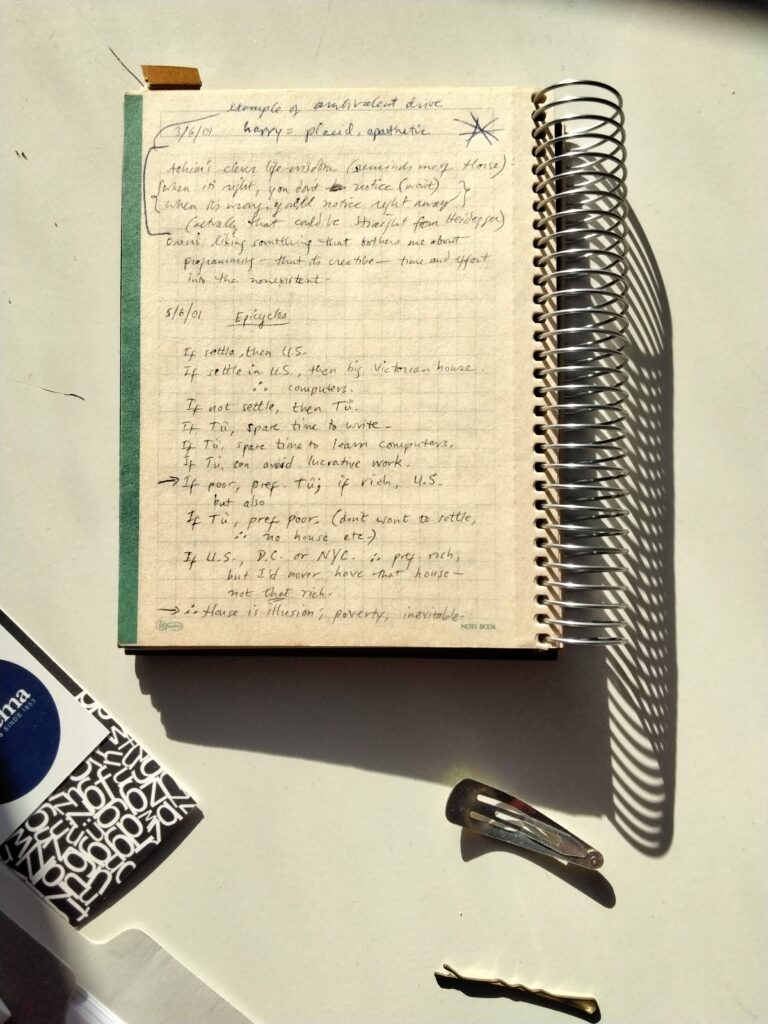June 5, 2001
When I wrote this, I was living full-time in an idyllic southwest German university town where I had been a familiar figure since the eighties, spending money saved up from fifteen years of menial work elsewhere while sharing a small apartment with two other women. My last job had involved documenting C++, so people were leaning on me to learn to code.
My diaries are rife with shorthand made up of proper names. People stand in for their lifestyles, values, and even for chance remarks. For example, the Christe doctrine refers to a principle casually formulated by the heavy metal critic Ian Christe circa 1994. He felt that people should move where they want to live and look for work there, instead of the other way around, because people always give the really plum jobs to their friends. At the time he was making a living beta-testing video games.
The words in this entry are also abbreviations. Settle means to abjure free love and live with a partner again, likely tripling my household income. Computers means a full-time tech job. Tü, of course, is Universitätsstadt Tübingen, the notoriously livable earthly paradise where I was working my way through a friend’s list of sexual recommendations. Having slept with basically every man she knew, she had informed opinions as to which ones I’d enjoy. During the day, I wrote letters and blog entries (e.g. https://ift.tt/5AYCvk8). I was having a good time. Did I really want to “settle?”
The diary entry reflects a significant turning point in my thinking. I liked sexual freedom, but I also liked the idea of owning a drafty Gothic revival mansion on brick pilings in a field. The epicycles (twirling motion of the planets in Ptolemaic astronomy) showed me that my desires were mutually exclusive, so I dropped one (the house, obviously) and never looked back.
Nell Zink has published six novels, including the recent Avalon.
from The Paris Review https://ift.tt/cANZPOf


Comments
Post a Comment